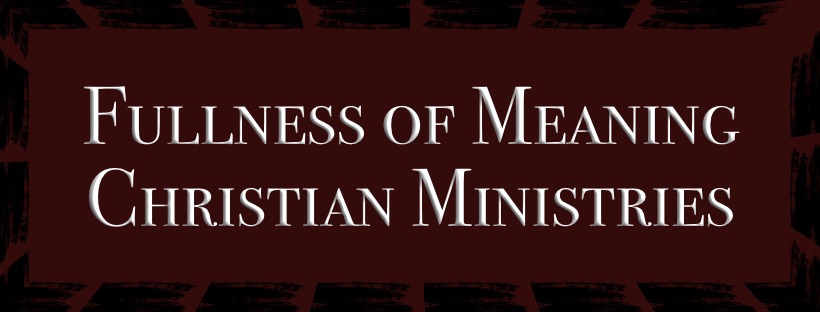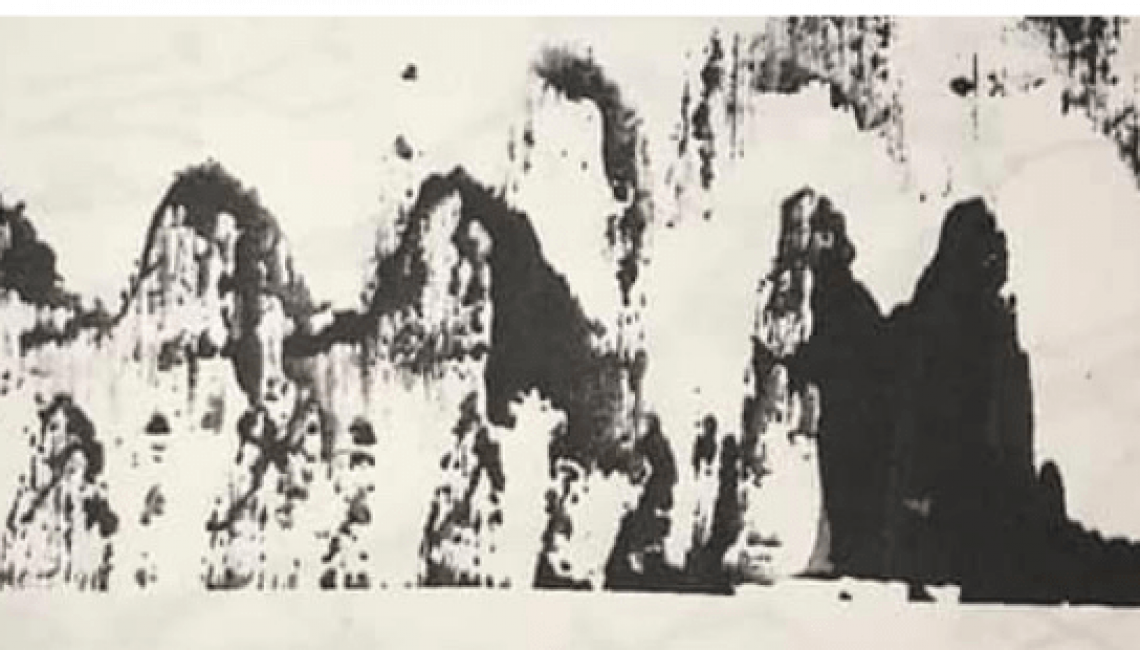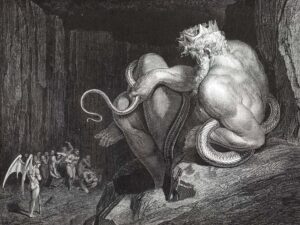There is no doubt in my mind that Tolkien felt the bankruptcy for the meaning of words in his time. Tolkien knew that words and WORD (the substantive reference by which all things refer to for meaning), via “Narration”/ “Story”, were the cure for giving those who cared about meaning a hope. Such a hope was the consistency of ‘signals’ and ‘semiotics’. A “world” without double entendre, doublespeak, ‘dark sentences’, ‘shadow logic’, etc. was a ‘world’ of pure expression, pure thought without cloudiness. A world that disallowed ‘those’ who would rule by ‘witty-word play’ and carelessness for meaning, only the power to make those around them fear potential shame for not being in the illusory ‘in the know’.
Tolkien knew that a linguistic vaccination could be carried out by a Philological treatment under the beautiful cloak of The Myth/ The Fantasy that England never had, namely, The Lord of the Rings.
Wales had Arthur, Scotland had hobgoblins and Fairie as did Ireland. Ireland had the Dun Cow as a staple of myth, but England only had fancy writings which referenced other’s myths.
The sickness of social and verbal (one and the same to Tolkien {and to me}) relativism had obviously taken hold of the world through the blind war of rejecting Theology all together. This darkness had covered the world prior to Tolkien’s day. Relativism, as a social shadow logic, called certain men to arms such as Owen Barfield, C.S. Lewis, Charles Williams and J.R.R. Tolkien to arms.
To repeat, the works of the Silmarillion, Hobbit, Lord of the Rings and his many other correlative and supplemental histories surrounding ( especially, the Lord of the Rings), were of a Philological nature. And, the IMPORT of this Philological treatment incurred THE NARRATION.
This is where Tolkien’s Theological understanding bypassed his blind Sacraments. A new and yet very ancient *faith* in the meaning of words within Fantasy’s exercise of the True LOGOS could replace the blind acts of objectivism in stale motions ever unending.
Tolkien had an ‘extra-Christian’ approach.Tolkien understood that the MECHANISM by which ALL THINGS COME FROM, GO TO, EXIST BY (one might refer to Colossians 1:14-ff) could be expressed within The NARRATION regardless if the narrative with Fantasy or Objective-Real-World.
The pure-inner-consistent NARRATION is the eternal-a-tempo *WORD* which unfolds in TIME and SPACE). Therefore, “IT IS DONE” means both NARRATION and WORD——this is the truest sense of coherent and consistent meaning. Another way to say this, Eternity unfolded is true Narration because ‘eternity’ cannot contradict itself as being self contained outside of time and space. This also gives hint to what Abaddon is. A thing placed into eternity with never ending reduction, non sustainable, contradictive.
The hint of objectivity, externality and eternal nature find themselves allowed to function in conjunction inside of Fantasy. That is, Fantasy allows both NARRATION and WORD (a seemingly contradictory, yet, coherent *idea-figuration*) to exist in it’s world as the same thing – i.e., some kind of predeterminism is sensed due to Author to that which is written relationship, or. “Idea” to “pen” to “words” to “narration”. In the mind of Illuvatar and in the mind of Tolkien were all themes created and nothing was before. So, where’s the ‘free’ and the ‘will’? Tolkien’s Silmarillion makes it clear that his Ainur or Holy Ones were given the freedom to subcreate upon the themes of Illuvatar and Illuvatar was glad to see this. But, nothing was made that wasn’t made of Illuvatar and HIS “EA” which is, “Let it Be” and the WORD.
Theologically speaking, this is the “REASON” by which we must *believe* in the Lamb that was slain from the foundation of the world (Rev. 13:8) —-i.e., we ‘hold two seemingly contradictory ideas at the same time to see REASON. He both talked to His disciples in the tempo of this world, created the world, ends the world, loved us before the world began, predetermined us to believe before the foundation of the world, knew us before the foundation of the world—that is: had a living relationship with us before anything was made (Romans 8:28-31/ Ephesians 1:4, 13/ Ecclesiastes 1:15, 3:15, Isaiah 45:7-ff. ), . This means that part of Christ’s existence is outside tempo and space, the other, He works, dwells, dies, resurrects, etc. in time….and then, goes back to a place of non-tempo only to see us again…and, if you will, MUST be here and there at the same time – ‘time’ as we say, and the language of eternity are hinted in philology for us to see His eternal mechanics.
Yet, only the type of “sense” acquired for the magnitude of a GOD who could truly do all that HE claimed, requires a participation of belief. Such a concept was defined by Tolkien in his Monsters and Critics lectures presented at Oxford to mean, “a suspension of belief in the primary world”. This is applied to Fantasy, though,—-or is it?
Fantasy allows proportionate “inverses, obliques, corollaries, etc” to the primary or objective-cold-metrics world by which ONLY Fantasy writing can do—that is, time can go back and forth with a Christ figure of the Fantastic whereas it cannot with the Christ in this world. Fantasy can allow for a Christ figure to break the primary world’s rules, that is, show HIS epiphanic Nature before the cross event, or many other virtues of LOGOS before the Objective Gospels show HIS unfolding. In Fantasy, the Christ figure could show Himself as a Shaman, but, as a Christ figure, never could HE defame HIS virtue if HE is a figuration in the Fantastic Narrative *as* a Christ figure.
But, as these ‘changes’ or ‘delineations’ occur which separate Primary (objective) vs. Secondary (fantasy) worlds, these ‘changes’ MUST come with rules to support the same valuation of the Christ, if HE is to be of equal value *in Story* that the Christ holds in actuation or objective reality.
It is most important to understand that Tolkien believed that Fantasy would not bring blasphemy to the Biblical Text as ‘another Gospel’. This is WHOLLY what Tolkien would NOT WANT. Again, his works were ‘extra-Christian’.
It is in the FANTASTIC writing of all of Tolkien’s works that we can see LOGOS actually work through a different medium other than time as we know, light as we know, purity as we understand and the fleshly limitations that we bear in this primary world. On the other hand, bread, mushrooms, carrots, stew, fire, pipes, tobacco, and coziness exists much to our liking in this primary world.
Lastly, for the PURE ARTIST, i.e., Tolkien, he was driven to write the pure narrative. Through this purity striven to achieve, it was enough to convey an alien beauty not seen in its like before. There is an ‘arrest’ of the senses and a draw to this other world where, I, personally, could find myself happily lost.
If there is a contradictive *NATURE* to the poem, myth, story, fairy tale, …then, there was a disobedience to the WORD or LOGOS by the Narrator. These holy rules are real for Tolkien’s fantastic writing and therefore, IT is REAL. Only when there is agreement with Narrator, Logos, Narration, do we have PURE art, fantasy, meaning, significance, semiotics, TRUTH.




